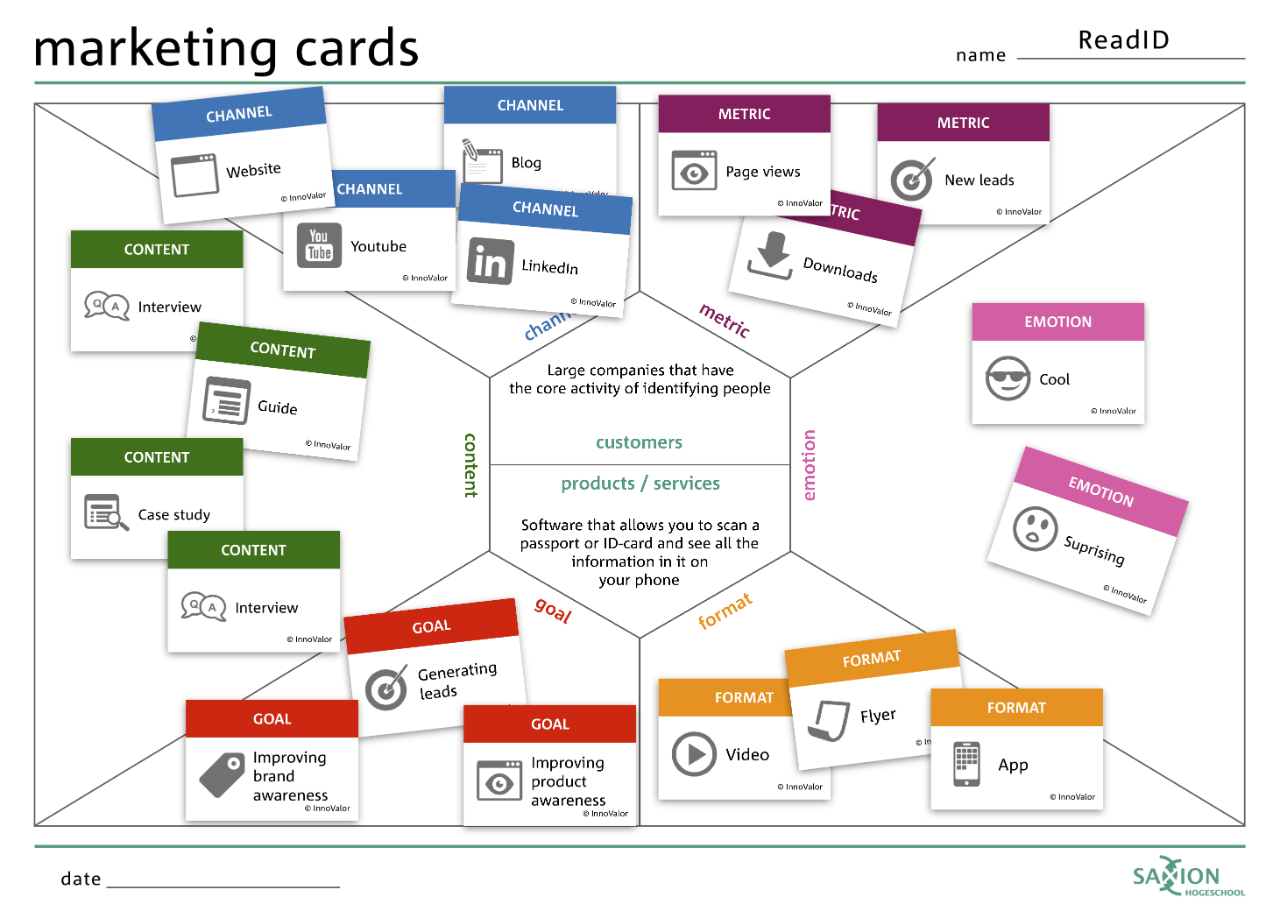Marketing Cards

Tips for use
You can use the Marketing Cards by yourself, but it is more effective to use them in a group, such as with colleagues or experts in your domain.
Use the Marketing Cards and template in order to brainstorm about your message to (potential) customers. Have a look at the example for READID software to get inspired and learn from the practical application of the Marketing Cards.
How to use
The cards are divided into six groups:
- the goals you would like to reach;
- the format of your message;
- the content of your message;
- the channels for distributing your message;
- the metrics for measuring success;
- and the emotion you would like your customers to feel.
The Marketing Cards give you inspiration in creating a message for your (potential) customers. Follow the nine steps to determine your marketing strategy.
Step 1: customers
Start by describing your (potential) customers that will receive your message. Make this group specific by adding characteristics like age, gender, lifestyle, interests. But keep it simple, do not use too many words.
Step 2: product or service
Describe the product or service for which the message is created. Usually a marketing message is used to create visibility for something that your company offers. When your message is not related to your products or services you can leave this space empty.
Step 3: goals
With your customer and product in mind you can choose the goal(s) of your message. What do you want to achieve after (potential) customers have heard your message? Do you aim for more sales or just for more visibility in the market?
Step 4: format
Select the format(s) that best fit(s) your message. How will you make your message known to your (potential) customers? Will it be a video, an infographic or an e-mail?
Step 5: channel
Select the channel(s) for sending out your message. Your message needs to be brought to your (potential) customers somehow. You need a channel to distribute your message. Do you want to use social media channels or more traditional channels like television?
Step 6: content
Choose the content of your message. Your message needs to be about something, you need to think about what content will appeal to your (potential) customers. Would they like to see a quiz, an experiment, a guide, or a product?
Step 7: metrics
Choose the right metric(s). You only know whether you reached your goal if you measure it. You need metrics to measure the success of your message. Do you want to measure the number of new visitors for your websites, positive reviews, average revenue per customer or Facebook likes?
Step 8: emotions
Select the emotion(s) that you want to trigger with your message. Your message needs to capture the attention of your (potential) customers. Do you want your (potential) customers to find your message illuminating, cool, or surprising?
Step 9: conclusion
Look over your marketing canvas, do the cards match with each other? For instance, do the metrics and goals correspond with each other?